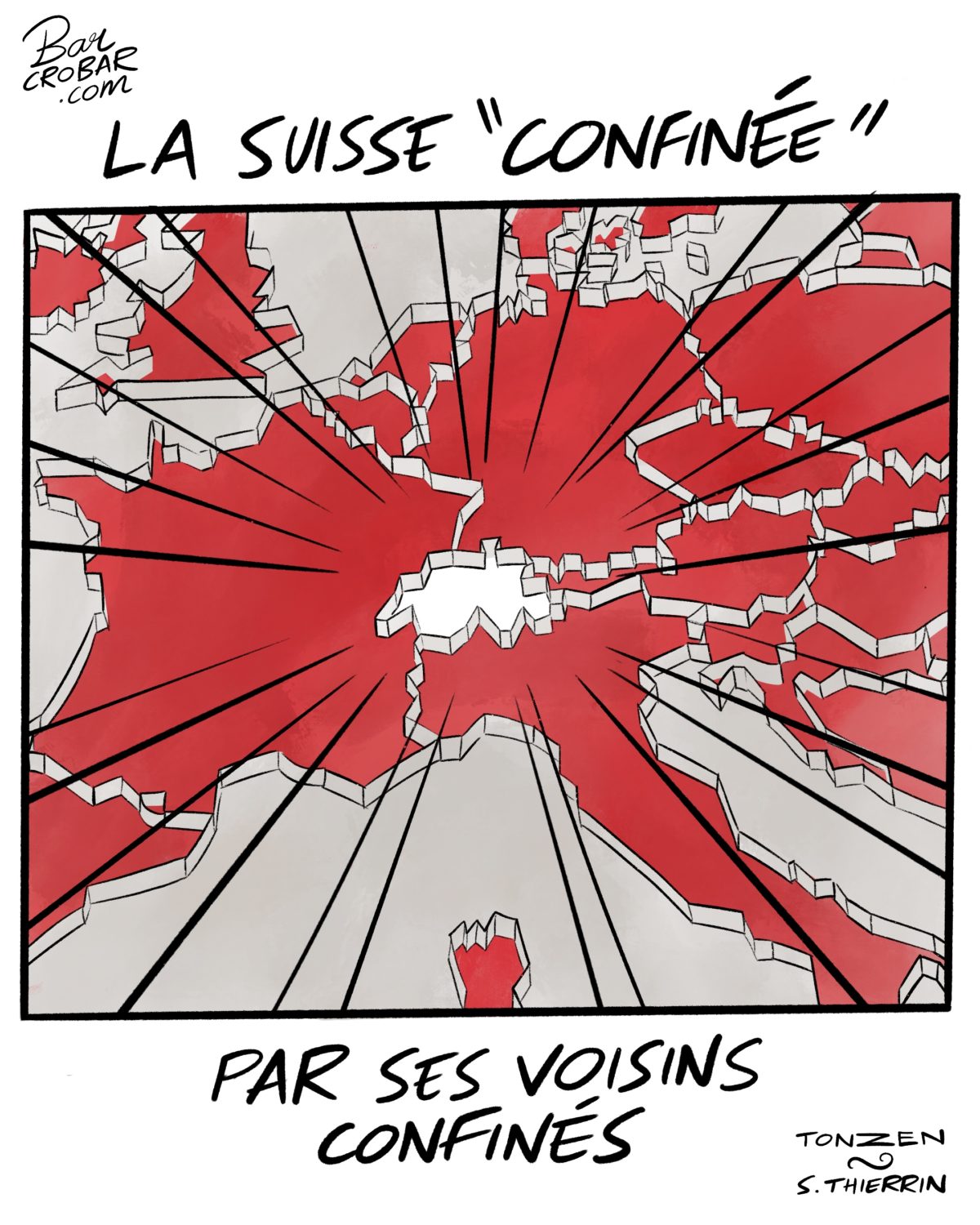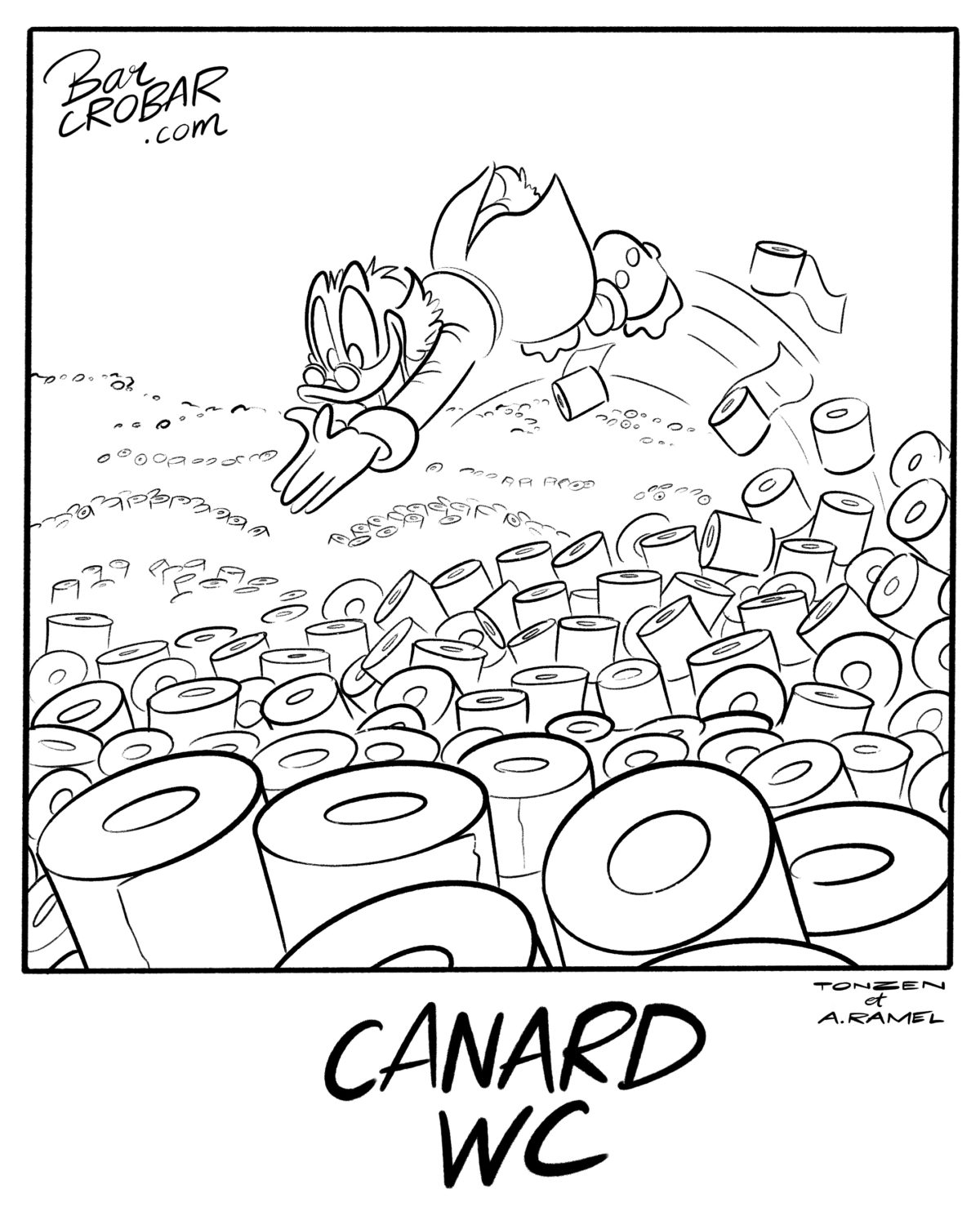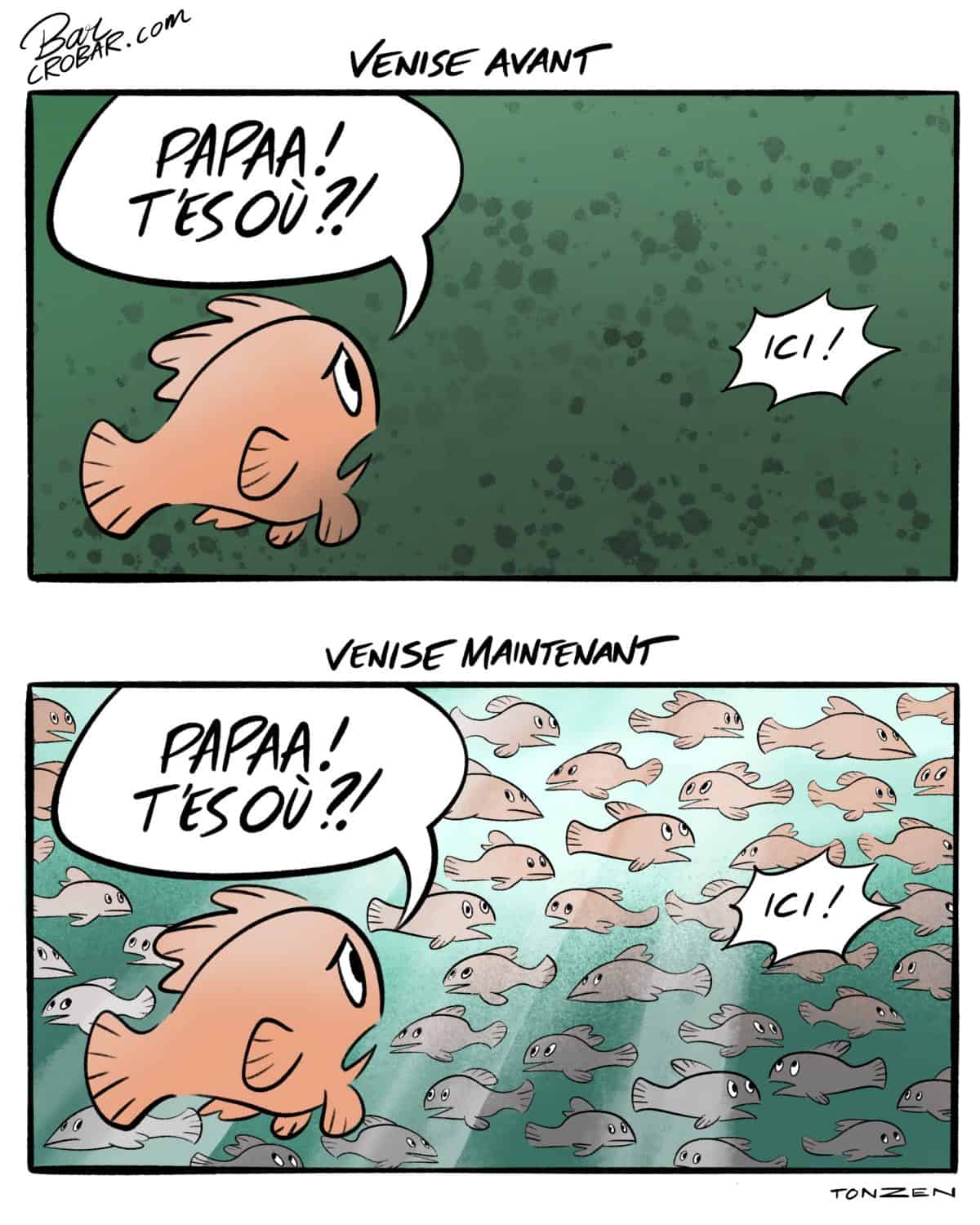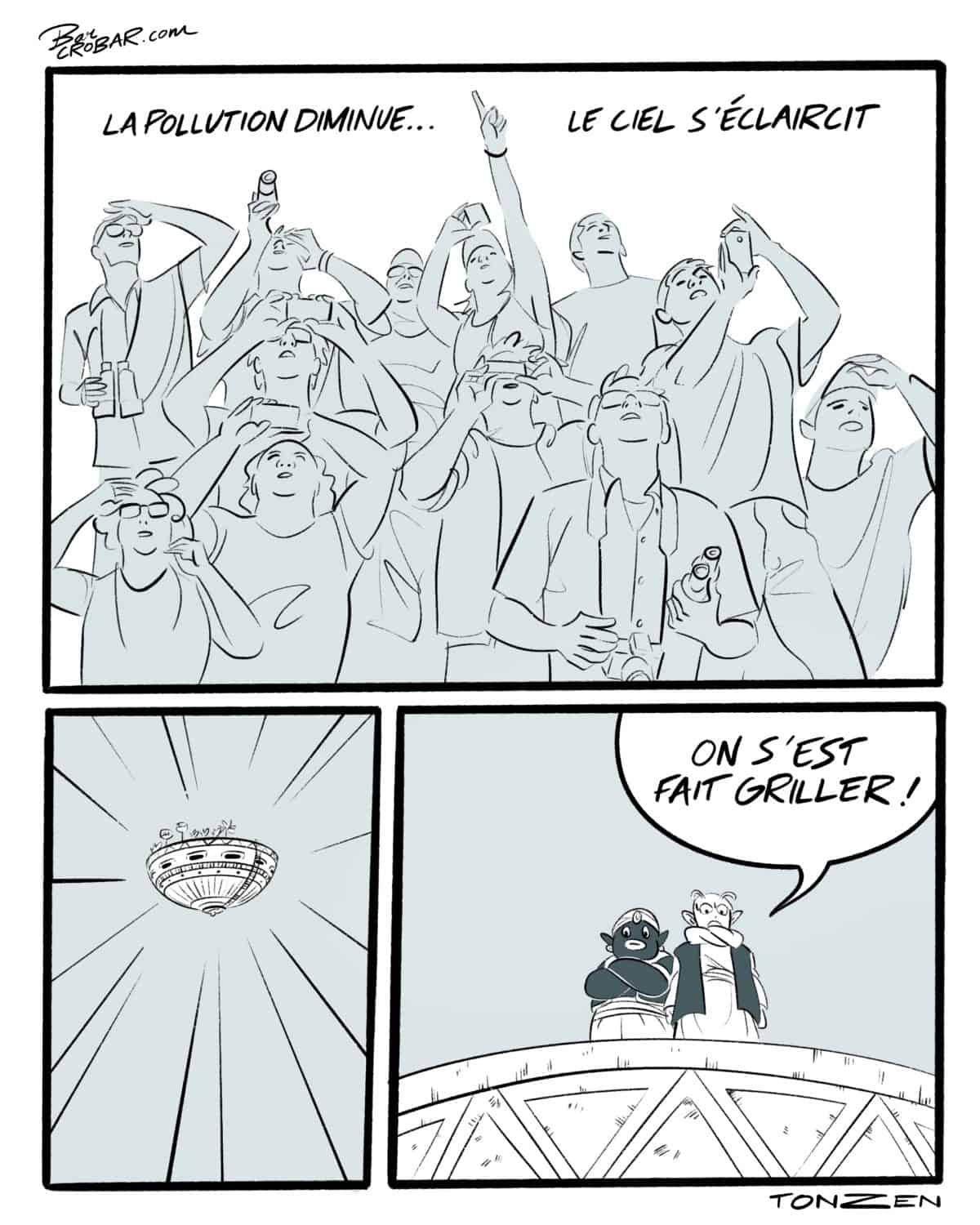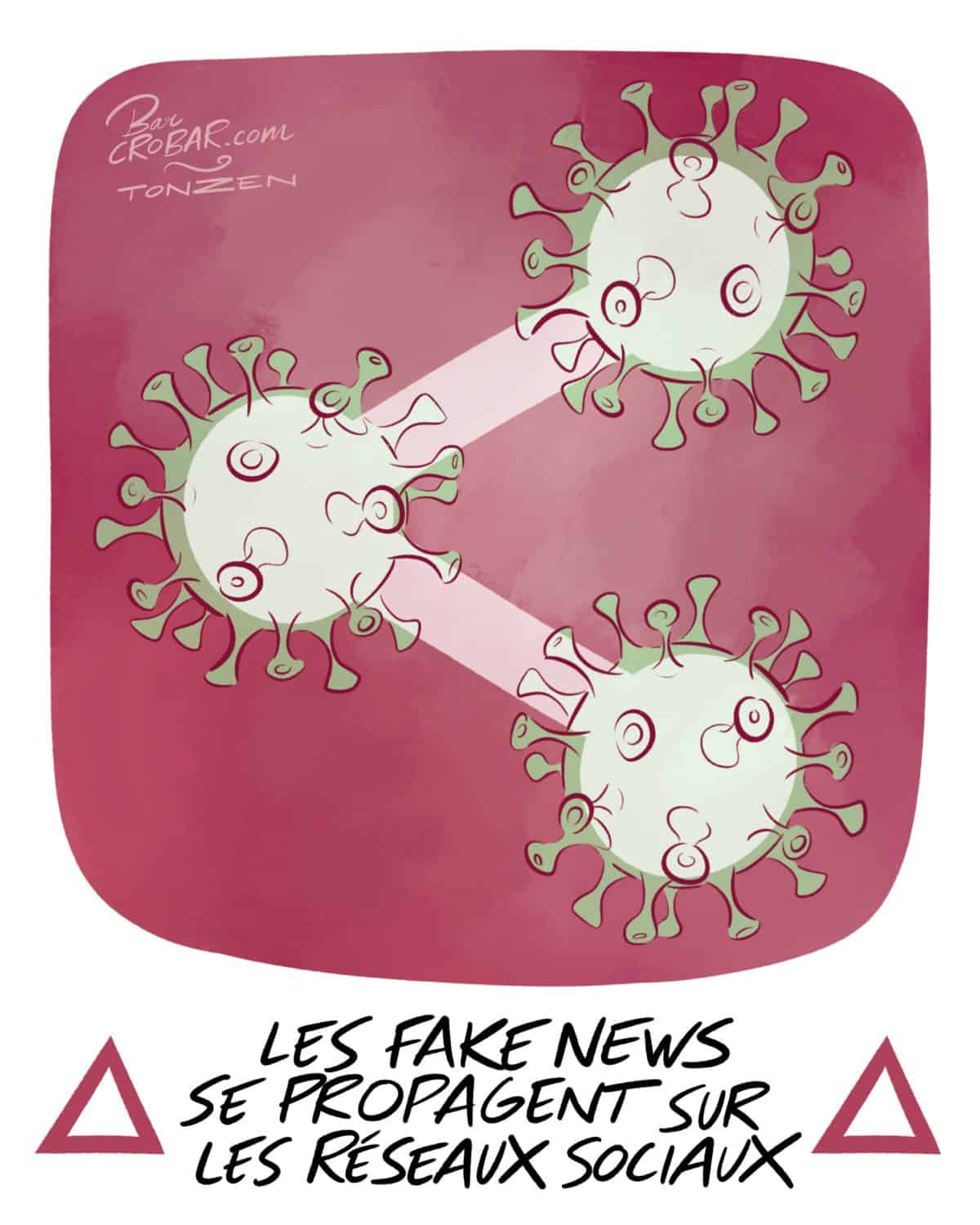Another scourge is spreading at the same time as the coronavirus: false information. Here are a few simple tips to help you avoid being infected.
A "massive infodemia. This is how the World Health Organisation has described the false information that has been spreading worldwide along with the coronavirus since the epidemic began. To avoid being infected by this "fake news", but also to avoid contaminating your loved ones, franceinfo gives you seven simple tips to protect yourself from disinformation.
Beware of digital word of mouth
The way in which information is shared should make you wonder. There are more reasons to doubt it if it arrives in your e-mail inbox via an e-mail from your grandmother, which she herself has received from someone else, on WhatsApp via a message from your cousin in your family group, sharing content from another group, via a publication by a "friend" that appears in your Facebook feed. There is more reason to believe a piece of information if it is published by a well-known and recognised media outlet (a news website such as franceinfo.fr, a newspaper such as Le Monde(e.g. a television channel like France 2 or a radio station like France Inter).
One of the latest and most viral hoaxes about the coronavirus, which listed a series of increasingly false pieces of advice about the virus and how to protect yourself against it, has spread in the form of chain emails and messages on social networks.
Don't believe arguments from authority
Have you noticed how rumours are often accompanied by a little phrase assuring you that the information comes from an eminent specialist, sometimes anonymous, preferably working on the other side of the world and whom you have never heard of? The mention of this supposedly authoritative figure has only one purpose: to lend credibility to the false information.
Here are some of the formulas used in the latest and most viral "fake news" about the coronavirus: "This information comes from doctors currently on the front line in the fight against the virus...". Or : "Taiwan experts provide simple self-check..." Or better still: "Serious excellent advice from Japanese doctors treating Covid-19 cases".. What are their names? Do they even really exist? The intoxicant won't tell you, of course.
One of the many variants of the Covid-19 protection advice scam began with these words: "Here is new information from a Shenzhen researcher transferred to Wuhan to collaborate with the task force against the coronavirus epidemic."
Control your emotions
False information plays on your feelings to spread. Their authors want you to feel shocked, outraged, worried, concerned or even frightened, so that this emotion prompts you to share their content in turn. Fake news" also uses our "confirmation bias": we want to believe certain things and they lock us into our convictions.
The myths surrounding Covid-19 are no exception to the rule, reminding you that "it can save a lot of people".The first is a new website, like this one, which claims to provide a self-administered breathing test every morning to make sure you're not suffering from a respiratory infection. You'll be tempted to spread the good news around you. But don't do anything. On the contrary, you risk putting them at risk.
Read the comments
It may seem paradoxical, but while you should be wary of what is written and shared on social networks, we also advise you to read the comments written in response to a dubious publication. It very often happens that Internet users question the veracity of content or point out its falsity. Sometimes they even provide a screenshot or a link to a web page confirming that you are indeed dealing with "fake news".
Here, for example, an Internet user is trying to make people believe that he has exchanged text messages with the government, after receiving the government text message "Covid-19 Alert". Another user has spotted the hoax and puts forward two arguments: firstly, you can't respond to this kind of solicitation, and secondly, the replies supposedly made by the government are full of spelling mistakes. Shady, isn't it?
Don't share false information just because it asks you to
False information only exists because it is shared on a massive scale. Without this virality, disinformation has little effect. That's why the vast majority of suspicious messages you receive contain one or more sentences urging you to send them to everyone you know.
In the latest Covid-19 misinformation spotted by franceinfo, for example, we find this kind of formula: "I'm gradually sending it out to all my French-speaking friends, so don't hesitate to forward as many as you can. Or : "Share this information with your family, friends and acquaintances." Or more compelling: "Copy, print, pass on. Or even a locanoid: "Share massively... Our advice: don't do it.
Try to check for yourself whether the information is accurate
When presented with information, you need to think critically. Ask yourself a few simple questions. Who is the author of the message? Is it anonymous or is it a well-known organisation? Do the sources they cite exist? What does the website, Facebook page or Twitter account where you found this publication usually share? Do other serious media also give this information? Is it simply too big to be true?
Inconsistent details in the text, photo or video can often lead you to doubt the veracity of the document. So listen to that little voice in your head that says: "That's a bit odd...". When in doubt, don't share.
By copying and pasting passages from the publication into a search engine, looking for the names and sources it mentions along with the associated subject, you will obtain results that will certainly make you wary. For example, a Google search for "The virus is not heat-resistant and will die if exposed to temperatures of 26-27°C" will bring up a number of well-known news websites, including franceinfo, warning of this falsehood. Our colleagues at AFP Factuel will give you some more technical tips, including how to check photos and videos that you might find suspicious.
Consult a specialist
If, despite all this advice, you still haven't managed to decide for yourself whether or not you are dealing with "fake news", ask a specialist for advice. For example, you can ask the question on franceinfo live using the tag #vraioufake, and one of our journalists will look into the matter. While you're waiting for an answer, don't be too hasty and ask yourself before sharing any information if it's really necessary, if it will be useful and if it won't, on the contrary, fuel fear and psychosis.
Benoît Zagdoun
France Télévisions


